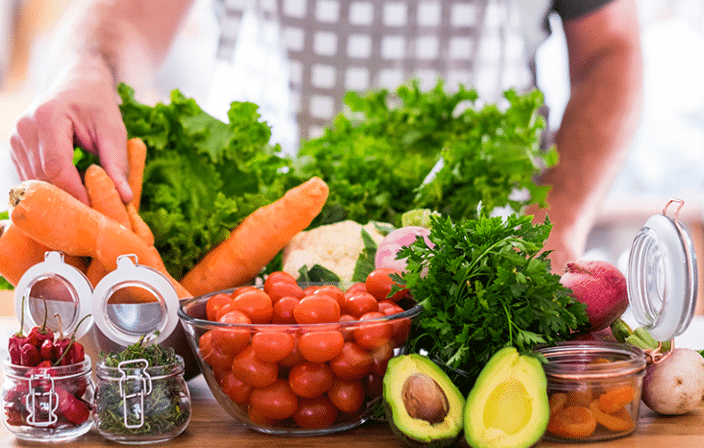Top Weight Loss Tips for Sustainable Results

Weight loss is a journey that many embark on, but achieving sustainable results requires more than just quick fixes or fad diets. It demands a comprehensive approach that includes dietary changes, exercise, mindset shifts, and lifestyle adjustments. This article delves deep into the top weight loss tips for sustainable results, offering practical advice that can be incorporated into daily life.
Understanding the Basics of Weight Loss
Before diving into specific tips, it’s crucial to understand the basics of weight loss. At its core, weight loss occurs when you consume fewer calories than your body burns. This calorie deficit forces your body to use stored fat for energy, leading to weight loss. However, the process is more complex than simply eating less and moving more. Factors such as metabolism, muscle mass, hormonal balance, and even sleep can influence how effectively you lose weight.
Focus on Nutrient-Dense Foods
One of the most effective ways to achieve sustainable weight loss is to prioritize nutrient-dense foods.These are foods that provide a high amount of nutrients relative to their calorie content. Examples include fruits, vegetables, lean proteins, whole grains, and healthy fats. By filling your plate with nutrient-dense options, you not only satisfy your hunger but also give your body the vitamins, minerals, and other essential nutrients it needs to function optimally.
Incorporating more vegetables and fruits into your meals is a great starting point. These foods are naturally low in calories and high in fiber, which helps you feel full longer. Lean proteins, such as chicken, fish, tofu, and legumes, are also vital as they help preserve muscle mass during weight loss, which is crucial for maintaining a healthy metabolism.
Practice Portion Control
Portion control is a fundamental aspect of sustainable weight loss. Even healthy foods can contribute to weight gain if consumed in large quantities. Learning to recognize appropriate portion sizes can help you avoid overeating and create a balanced diet that supports your weight loss goals.
One practical tip is to use smaller plates and bowls. This simple trick can make portions appear larger, helping you feel satisfied with less food. Additionally, be mindful of serving sizes, especially when eating out. Restaurants often serve oversized portions, so consider sharing a dish or saving half for later.
Stay Hydrated
Hydration plays a significant role in weight loss. Drinking enough water can help you feel fuller, reduce hunger, and even boost your metabolism. Sometimes, our bodies mistake thirst for hunger, leading to unnecessary snacking. By staying hydrated, you can avoid this common pitfall.
Aim to drink at least eight glasses of water a day, but remember that individual needs may vary depending on factors like activity level and climate. Herbal teas and water-rich foods like cucumbers, lettuce, and watermelon can also contribute to your daily hydration needs.
Incorporate Regular Physical Activity
Exercise is a critical component of sustainable weight loss. While diet controls the number of calories you consume, exercise determines how many you burn. Regular physical activity not only helps you burn calories but also improves your overall health, boosts your mood, and enhances your energy levels.
When it comes to exercise, variety is key. Incorporate a mix of cardiovascular activities, such as walking, running, swimming, or cycling, with strength training exercises. Strength training is particularly important because it helps build muscle, which in turn increases your resting metabolic rate, allowing you to burn more calories even when at rest.
Set Realistic and Achievable Goals
Setting realistic goals is essential for long-term weight loss success. Unrealistic expectations can lead to frustration and, ultimately, the abandonment of your weight loss efforts. Instead, focus on setting small, achievable goals that you can build upon over time.
For instance, rather than aiming to lose a large amount of weight quickly, set a goal to lose 1-2 pounds per week. This is a healthy and sustainable rate of weight loss that allows your body to adjust gradually. Celebrate each small victory along the way, and remember that slow progress is still progress.
Prioritize Sleep and Stress Management
Sleep and stress are often overlooked factors in weight loss, but they play a significant role in your overall success. Lack of sleep can disrupt hormones that regulate hunger and appetite, leading to increased cravings and overeating. Chronic stress, on the other hand, can trigger emotional eating and lead to the accumulation of belly fat.
To support your weight loss efforts, aim for 7-9 hours of quality sleep each night. Establish a regular sleep routine, avoid screens before bed, and create a restful environment to improve your sleep quality. Additionally, find healthy ways to manage stress, such as meditation, yoga, deep breathing exercises, or simply taking time for yourself each day.
Be Mindful of Your Eating Habits
Mindful eating is a powerful tool for sustainable weight loss. It involves paying full attention to the experience of eating and being aware of hunger and fullness cues. By eating mindfully, you can avoid overeating, reduce emotional eating, and develop a healthier relationship with food.
Start by slowing down during meals. Chew your food thoroughly, savor each bite, and take breaks to assess whether you’re still hungry. Avoid distractions like watching TV or using your phone while eating, as these can lead to mindless overeating.
Avoid Fad Diets and Quick Fixes
Fad diets and quick fixes may promise rapid results, but they are rarely sustainable and can often lead to weight gain once you stop following them. These diets often involve severe calorie restriction, which can slow down your metabolism, cause muscle loss, and lead to nutrient deficiencies.
Instead of following the latest diet trend, focus on making gradual, long-term changes to your eating and exercise habits. This approach may take longer, but it is far more likely to result in sustainable weight loss and overall health improvements.
Keep Track of Your Progress
Tracking your progress can help you stay motivated and make necessary adjustments to your weight loss plan. There are various ways to track progress, including keeping a food diary, using a fitness app, or simply taking regular measurements of your weight, waist circumference, or body fat percentage.
However, it’s important not to become too fixated on the numbers. Weight can fluctuate for various reasons, including water retention and muscle gain. Focus on overall trends rather than daily changes, and remember that progress is not just about the scale—it’s also about how you feel, your energy levels, and your overall health.
Find a Support System
Having a support system can significantly enhance your weight loss journey. Whether it’s a friend, family member, or a group of like-minded individuals, having people who understand and support your goals can provide encouragement, accountability, and motivation.
Consider joining a weight loss group, either in-person or online, where you can share your experiences, challenges, and successes. Alternatively, find a workout buddy who shares your fitness goals, or enlist the help of a professional, such as a dietitian or personal trainer.
Practice Consistency, Not Perfection
Consistency is key to sustainable weight loss. It’s important to remember that you don’t have to be perfect to achieve your goals. Everyone has slip-ups, whether it’s indulging in a favorite treat or skipping a workout. What matters most is how you respond to these moments.
Rather than viewing a slip-up as a failure, see it as a learning opportunity. Reflect on what led to the decision and how you can handle similar situations in the future. Get back on track as soon as possible, and keep your focus on the bigger picture rather than individual setbacks.
Focus on Non-Scale Victories
While weight loss is often measured by the number on the scale, it’s important to recognize and celebrate non-scale victories (NSVs) as well. NSVs include improvements in fitness, better sleep, increased energy levels, enhanced mood, and even the ability to wear clothes that didn’t fit before.
These victories can be incredibly motivating and are a reminder that weight loss is about more than just losing pounds—it’s about improving your overall quality of life. Take time to acknowledge and appreciate these milestones as you progress on your journey.
Make Long-Term Lifestyle Changes
Sustainable weight loss is not about short-term diets or temporary changes; it’s about making lasting lifestyle changes that support your health and well-being. This means developing healthy eating habits, staying physically active, managing stress, and prioritizing self-care on a long-term basis.
Identify areas of your life where you can make positive changes, and gradually incorporate them into your routine. Remember that small, consistent changes are more likely to lead to lasting results than drastic, short-lived efforts.
Consider Professional Guidance
If you’re struggling to achieve your weight loss goals on your own, consider seeking professional guidance. A registered dietitian, nutritionist, or personal trainer can provide personalized advice and support, helping you create a plan that is tailored to your individual needs and preferences.
In some cases, medical conditions or medications may be influencing your ability to lose weight. If you suspect this may be the case, consult with your healthcare provider to rule out any underlying issues and explore potential solutions.
Conclusion
Achieving sustainable weight loss is a journey that requires commitment, patience, and a holistic approach. By focusing on nutrient-dense foods, practicing portion control, staying hydrated, incorporating regular exercise, and making long-term lifestyle changes, you can create a foundation for lasting success. Remember to set realistic goals, celebrate non-scale victories, and seek support when needed. With consistency and determination, sustainable weight loss is not just possible—it’s within your reach.






